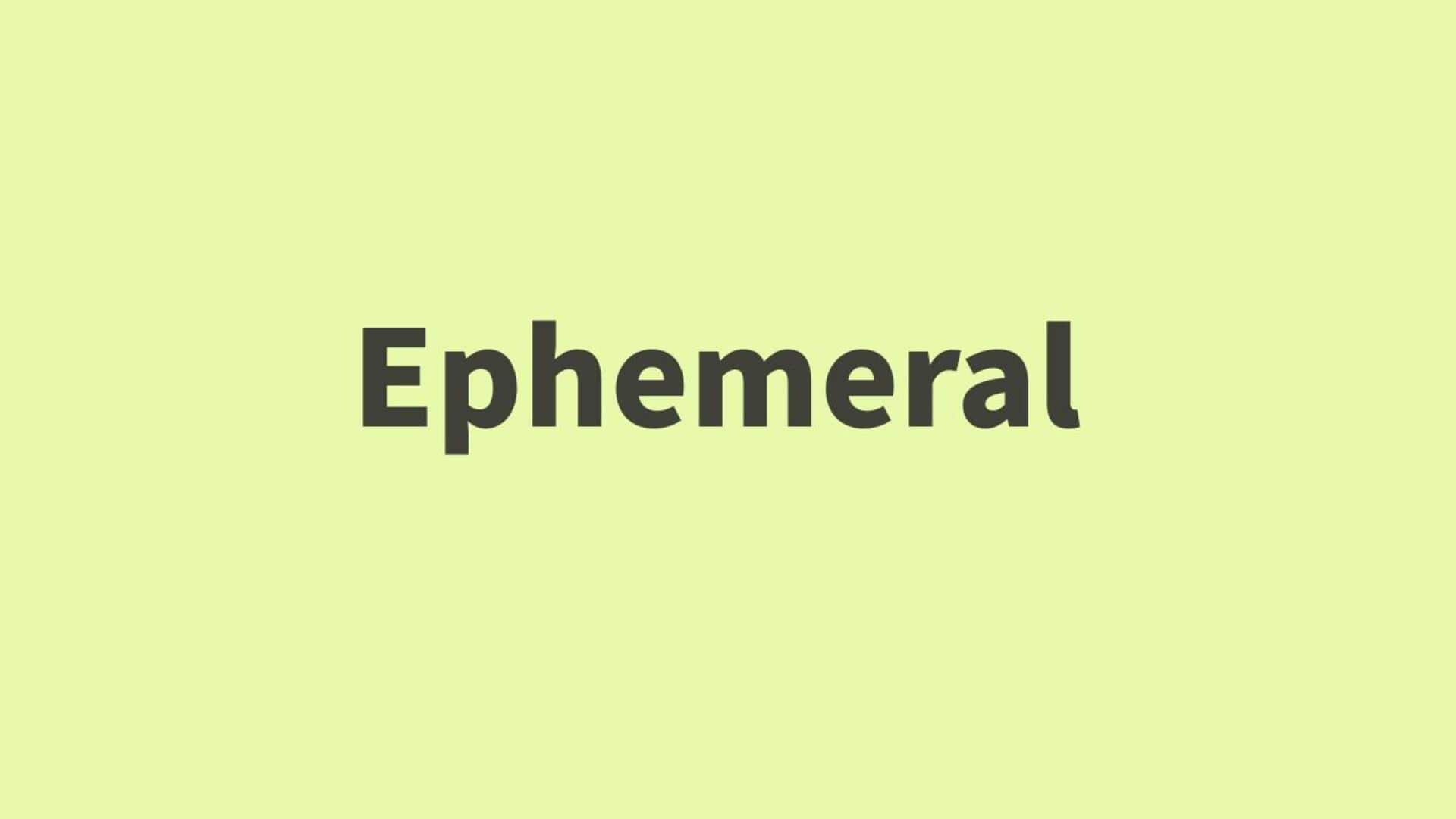
Word of the Day: Ephemeral
What's the story
Life is full of moments that are brief yet unforgettable, like a rainbow after a storm, a shooting star, or the fragrance of a blooming flower.
The word "ephemeral," which is an adjective, beautifully describes things, moments, or experiences that are short-lived yet leave a lasting impact.
Let's explore this word, its origins, synonyms, and examples of how to use it effectively in sentences.
Origin
The origin and meaning of 'ephemeral'
"Ephemeral" originates from the Greek word ephemeros, meaning "lasting a day."
The term combines "epi" (upon) and "hemera" (day), which highlights its connection to brevity.
First introduced into English in the late 16th century, it has been used to describe not only brief durations in time but also things that fade quickly.
Synonyms
Synonyms for 'ephemeral'
Synonyms for "ephemeral" include transient, fleeting, short-lived, temporary, and momentary.
These words are often used interchangeably to describe something that exists for only a brief moment.
For instance, a fleeting smile, a transient trend, or a momentary idea all emphasize the concept of something that swiftly fades away.
Usage
Sentence usage
"Ephemeral" can be used in several ways to describe transitory moments or experiences.
For instance, "The joy of winning was 'ephemeral,' as the team quickly focused on the next challenge," or "Her 'ephemeral' fame in the fashion world faded within a year."
Similarly, "The beauty of the cherry blossoms is 'ephemeral,' lasting only a few weeks each spring."
Ephemeral moments
Mindfulness and the 'ephemeral'
A fascinating aspect of "ephemeral" is its connection to the concept of mindfulness.
The word encourages us to appreciate the present moment, recognizing that many beautiful things are temporary.
Whether it's a sunset, a meaningful conversation, or a special experience, understanding their "ephemeral" nature can inspire us to cherish life's momentary pleasures more deeply.